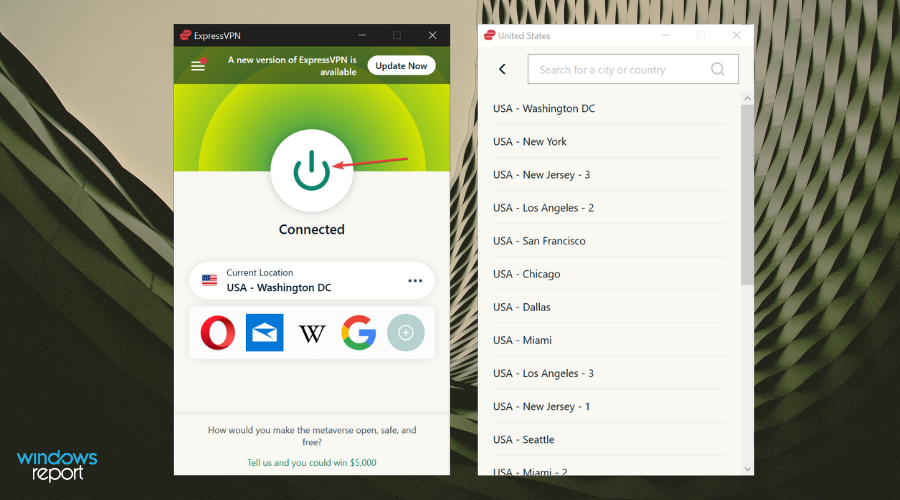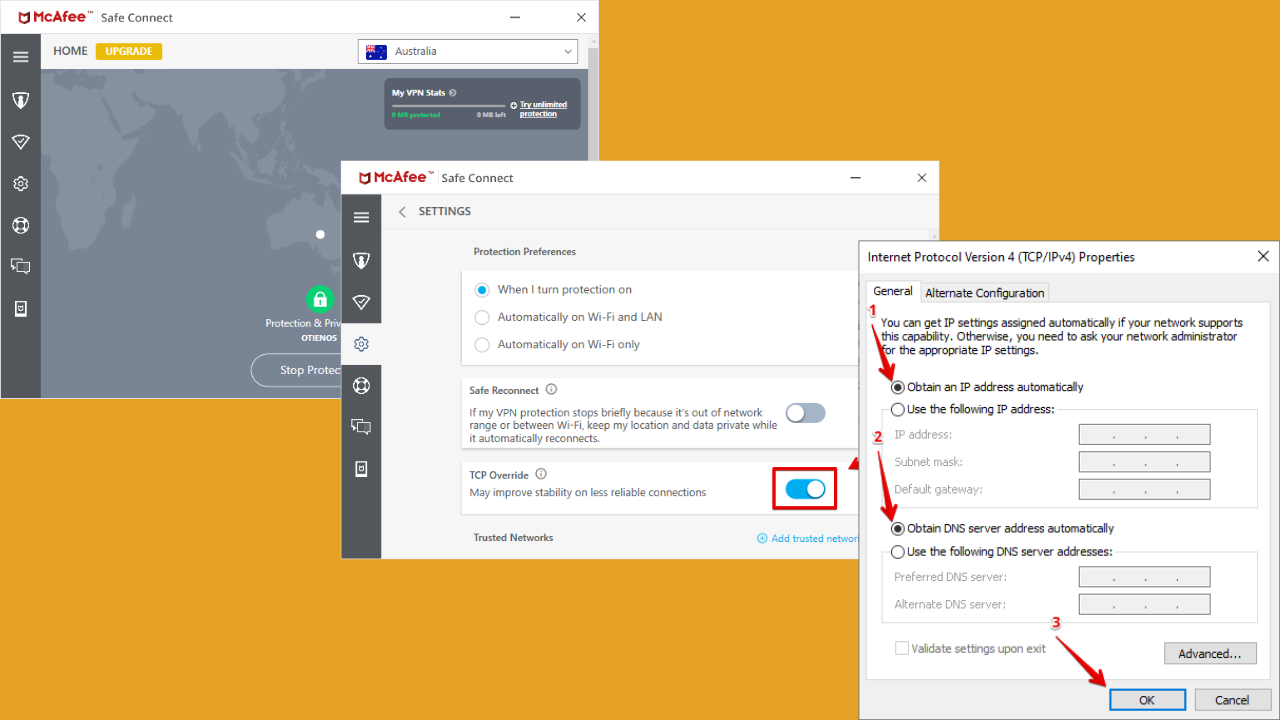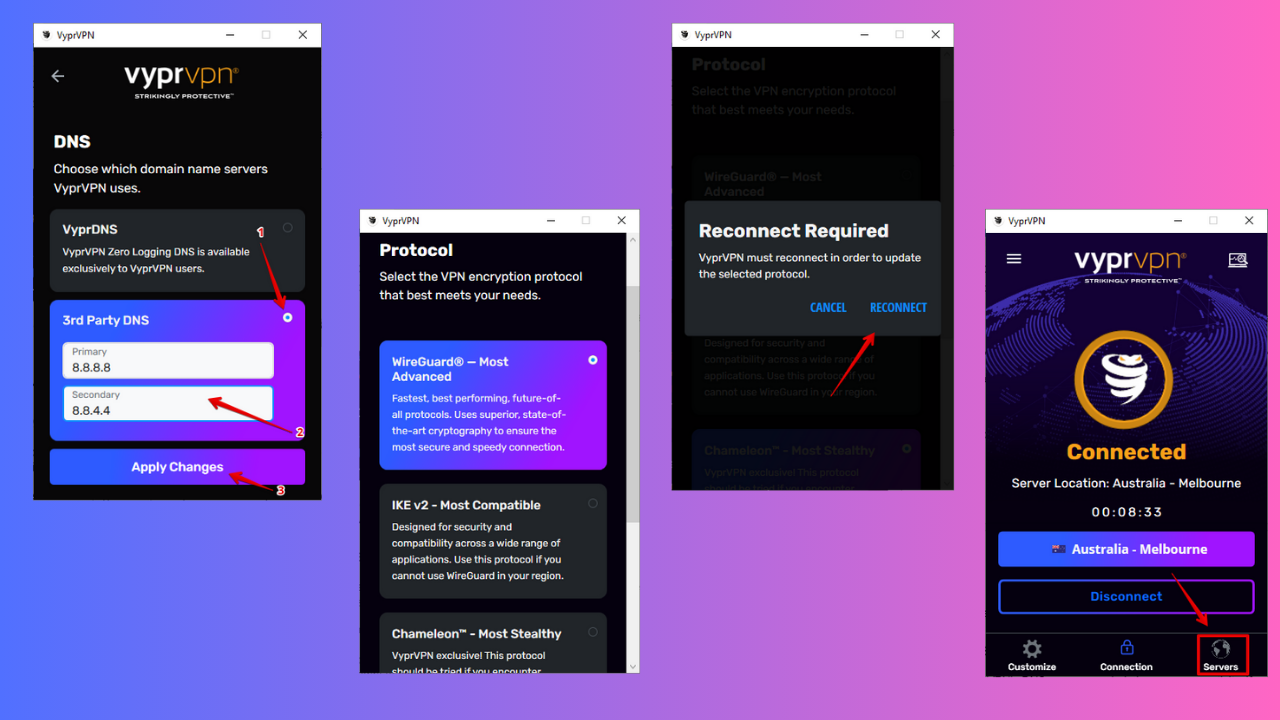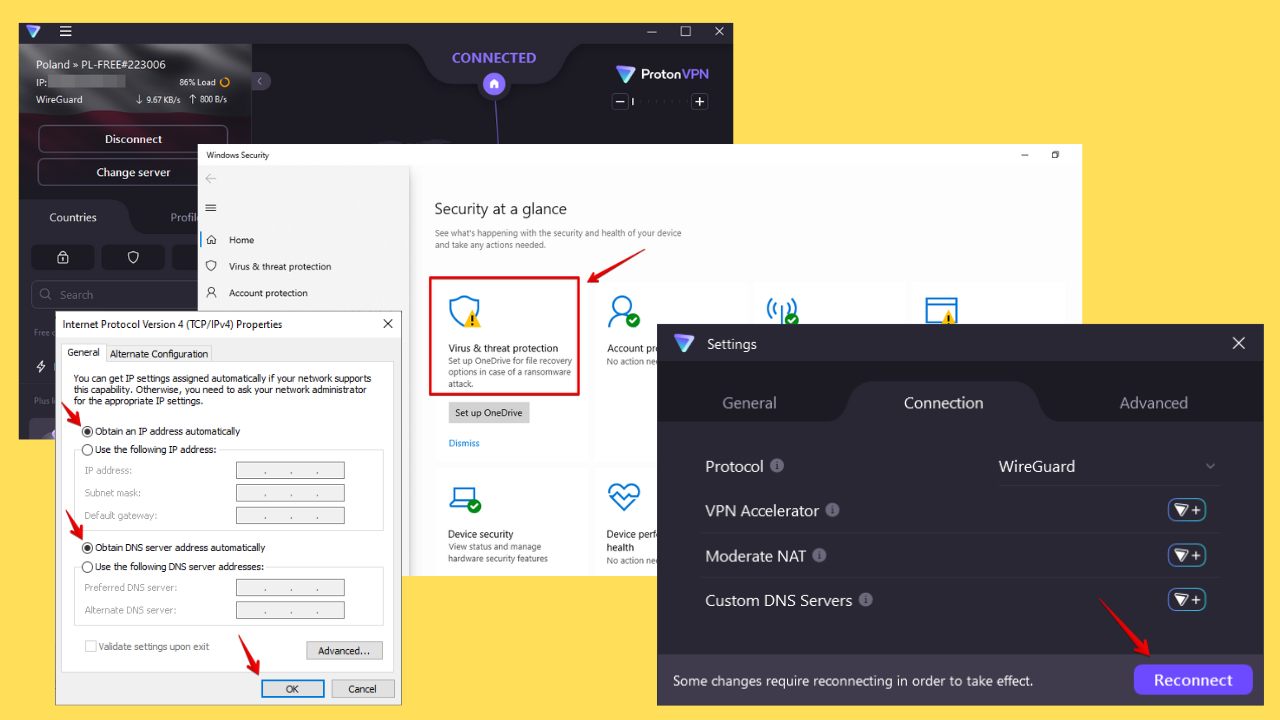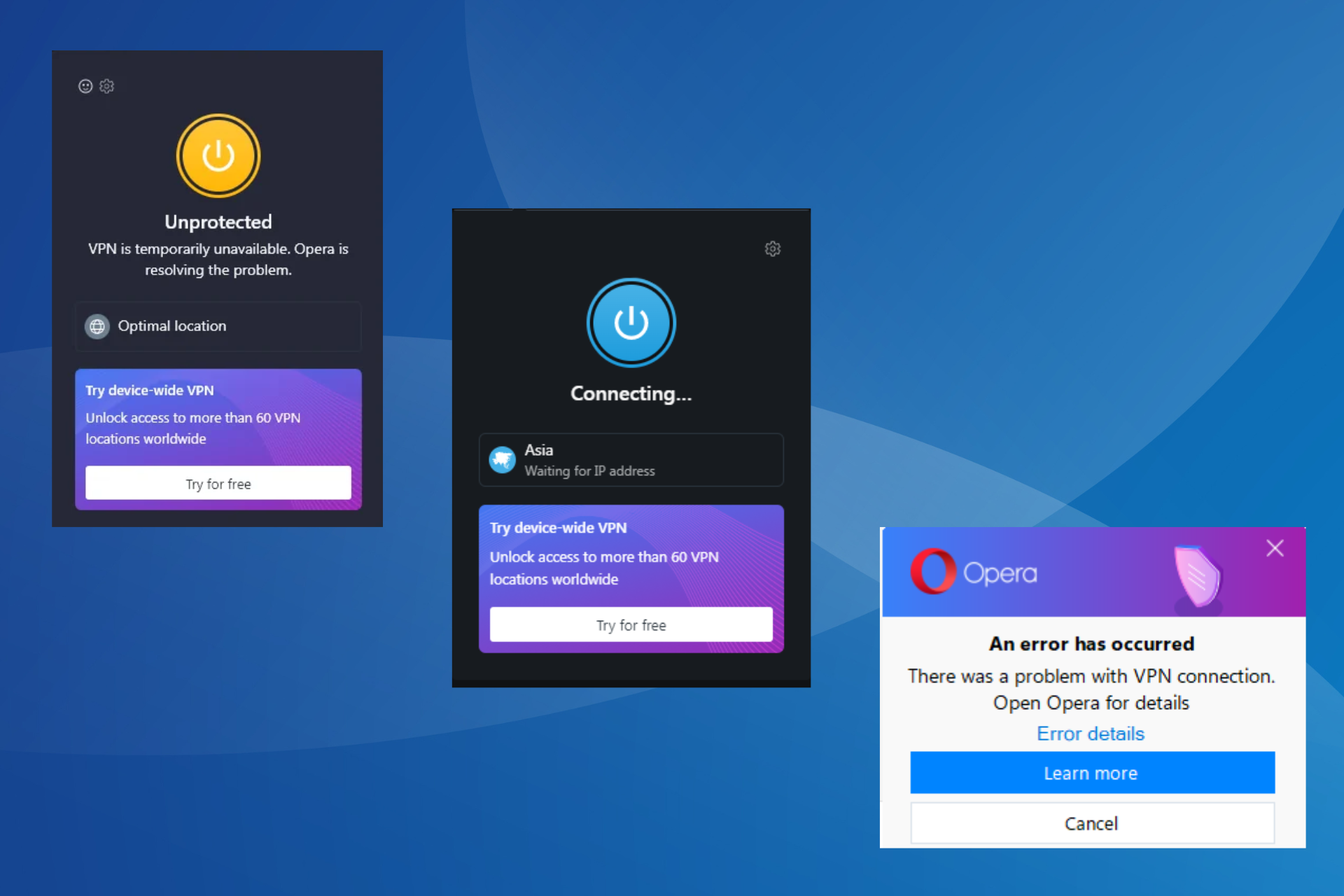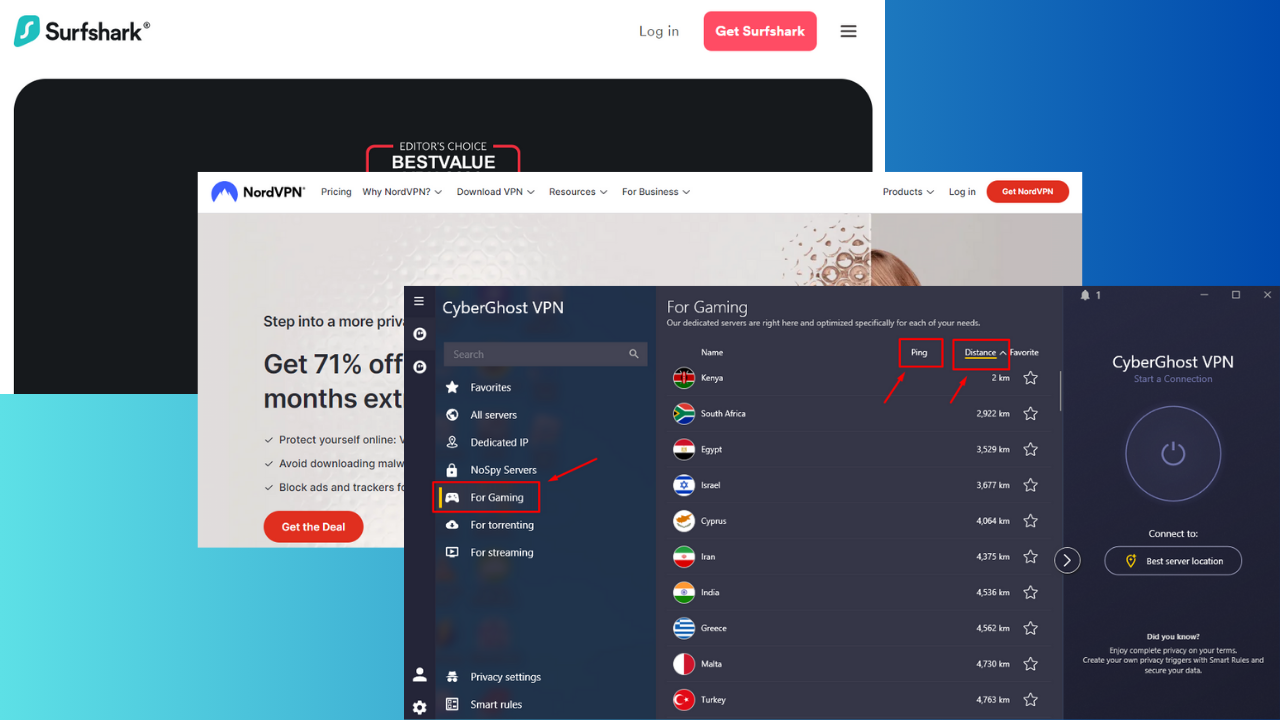Can VPN Change IP Address? How to Change IP With/Without VPN
Switch your server IPs anytime you require with a proficient VPN
5 min. read
Updated on
Read our disclosure page to find out how can you help Windows Report sustain the editorial team Read more
Key notes
- VPNs can help you tackle a lot of challenges regarding your online privacy and the security of your connection, but do you know how it works?
- Your VPN is able to change your IP address, but can also modify your DNS and apparent location.
- Performing this operation, it will appear that you're in a whole different region than you actually are.
- In order to learn more about how to change your IP address in a few clicks, follow our guide.

There’s a lot of misconception floating around when it comes to VPNs. Some people think that VPNs are used to spy on them, when in fact they do the opposite (keep spies at bay).
Some others strongly believe that VPNs can slow down their Internet speed. While that’s not entirely untrue, a VPN can help you achieve faster Internet speed, especially if you have an abusive ISP that throttles your bandwidth.
All in all, people just assume facts without actually knowing how a VPN works.
How does a VPN work?
A VPN takes your traffic and routes it through its own infrastructure. Let’s say you’re using a VPN on your desktop computer. Thus, the access point, in this case, is the VPN client.
You make a request to an online service (website, online game, mail server), which the VPN client retrieves and encrypts, pushing it forward through a secure, encrypted tunnel.
The request travels through the tunnel and reaches the VPN server, which decrypts it, and pushes it further to its destination. The service then generates a response and sends it back.
The response reaches the VPN server, gets decrypted, goes through the secure tunnel, reaches the client where it gets encrypted once again, and finally, it reaches you.
Throughout the connection, your data stays encrypted. The only two points where it’s not subject to encryption are your PC and the destination service.
And since your ISP can’t access either of those directly (hopefully), it can’t see what you’re doing.
VPN encrypts your traffic
Your default, a public Internet connection is visible to your ISP most of the time. That means that your ISP knows everything you do online: which website you visit, which files you download, which movie you just saw, and you get the picture.
But there are some things that your ISP can’t see. This includes emails, and generally everything you post on HTTPS-encrypted websites.
So, your ISP can still see that you’ve visited an HTTPS website, but can’t grab your username, password, or messages you’ve posted there.
Therefore, your ISP doesn’t get to see encrypted data, we’ve established that.
What a VPN does is take your regular, visible traffic and encrypt it, turning it invisible to ISPs. Thus, as long as your VPN doesn’t leak any encrypted data, your ISP can no longer see what you’re doing.
Can VPN change your IP address?
While you’re connected to a VPN server, your online identity changes. Every online entity you interact with will think that the originating point of your requests is the VPN server.
This entails that your public IP address is replaced by the server’s address so that it seems that all the requests were coming from the server.
But your IP address isn’t the only thing that a VPN can change/mask.
For instance, a (good) VPN also changes your DNS and location. This can come in quite handy, especially if you’re looking for ways to bypass geoblocking.
Does VPN change IP address every time?
Generally speaking, yes. When you connect to a VPN server you have more IP addresses attributed to that server location.
Consequently, it’s possible that you connect to multiple IPs every time you connect to different servers.
Does everyone on a VPN have the same IP address?
It depends on the type of your IP address. If your VPN has shared IPs you will share them with other users.
On the other hand, if you’re using dedicated IP addresses on your servers, you will have the same addresses every time without sharing them with other users.
How to change your IP address with VPN?
- Check your public IP address on any IP detection website.
- Download ExpressVPN.
- Install it on your computer.
- Run it and log into your account.
- Connect to a server of your choice (location not important).
- Check out your new IP address (many VPNs display it in the main window).
Kape Technologies’ ExpressVPN can provide you with a quick, uncomplicated way to change (or rather hide) your IP. All you have to do is connect to any services it provides you with and you’re set.
Aside from masking your public IP address, this VPN can also help you fight packet loss, and reduce in-game ping.

ExpressVPN
Do you need to mask your public IP? This VPN will help you with 94 different locations.More so, the main window lets you see your old IP address and your new one. Therefore, you don’t even need an IP checker to learn your new address.
Unless you don’t trust the client and want to see for yourself.
However, these fixes will only work if your ISP throttles your bandwidth and hasn’t figured out a way to block your VPN.
Can I change my IP without VPN?
Indeed, it’s possible to change the IP address in other ways than using a VPN connection. In case you wonder how to manually change my IP address, you can perform it from your device’s settings.
Other methods to change your IP are the following:
- Manually change your IP address using Windows Control Panel
- Use a proxy server connection
- Try the ToR browser
However, VPNs are the easiest way to change your IP address due to extensive server networks with thousands of IPs.
All things considered, it’s safe to say that there’s nothing complicated with changing your IP address with a VPN. You just launch it, connect to a random server, and let the VPN take care of everything.
However, note that while using a VPN, your IP address isn’t the only one that changes. A VPN can also mask your DNS, change your NAT type and assign you a different virtual location, depending on the server you chose.
Check out our best VPNs that can help you spoof your IP easily. Visit our VPN Hub if you want to discover more tools and guides on preserving your privacy.




